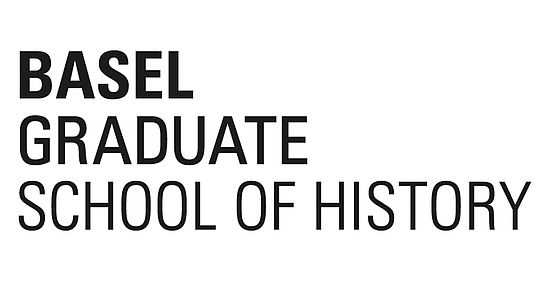
Sophia Polek«Es geht um deine Sache!» Das journalistische Berichten in der kommerziellen Presse des späten Russländischen Imperiums
In meinem Dissertationsprojekt schreibe ich an einer Kulturgeschichte des journalistischen Berichtens im späten Russländischen Imperium. Ich interessiere mich dafür, wie im journalistischen Berichten Wirklichkeitsansprüche narratologisch umgesetzt wurden, welche Ermächtigungsmechanismen damit einhergehen konnten, wie der «journalistische Pakt» zwischen Autor*in und Leser*in gestaltet wurde, und was uns das über die gesellschaftliche Kommunikation einer spezifischen historischen Situation sagt. Der Breitenjournalismus von 1890 bis zum Ersten Weltkrieg bewegte sich im späten Russländischen Imperium zwischen einer wachsenden urbanen Leser*innenschaft, kommerziell ausgerichteten Redaktionen und Druckunternehmen, wechselnden Zensurbestimmungen, Erzählkonventionen aus dem literarischen Realismus und den Volksbilderbögen, Arbeitskämpfen und dem grossen Umbruch von 1905. Dieser brachte nicht nur eine formelle Pressefreiheit mit sich, sondern auch neue Presse-Kontrollmechanismen sowie eine legale politische Bühne in der Duma und Parteizeitungen. In meiner Forschung untersuche ich die Ausgestaltung und Umgestaltung des journalistischen Berichtens in dieser turbulenten Umbruchsphase des Russländischen Imperiums.
Im Fokus der Untersuchung stehen die kommerziellen, populären und nicht-offiziellen (nicht staatlich subventionierten) Tageszeitungen der russländischen Hauptstädte. Darin gehe ich insbesondere den Artikeln des Moskauer Journalisten Vlas Michajlovič Doroševič (1864-1922) nach, einem schillernden Vertreter der „journalistischen Bohème“, die über wenig Schulbildung verfügte und der journalistischen Tätigkeit in der Massenpresse als Lohnarbeit nachging. Als Erweiterung und Korrektiv dienen mir ausserdem Artikel der Petersburger Journalistin und Parteipolitikerin Ariadna Vladimirovna Tyrkova (1869-1962).
Auf der methodischen Ebene möchte ich in meiner Dissertation einen Vorschlag machen, wie interdisziplinär ausgerichtete Historiker*innen journalistische Texte theoretisch fassen und analytisch bearbeiten können. Dazu gehört das Eindenken in die Erzählkonventionen und Glaubwürdigkeitspraktiken einer spezifischen historischen Situation und die kulturwissenschaftliche Analyse der journalistischen Texte, die auf Fragen nach Erzählstrategie und intendierte Lesart abzielt. Damit verorte ich mein Forschungsprojekt nicht nur in der Historiografie zum späten Russländischem Imperium und der Revolution von 1905, der russländischen Pressekultur und gesellschaftlichen Kommunikation, sondern auch in der auf Textanalyse basierenden Journalismusgeschichte – in der Kulturgeschichte des journalistischen Berichtens.
Erstbetreuer: Prof. Dr. Frithjof Benjamin Schenk (Basel)
Zweitbetreuerin: Prof. Dr. Korine Amacher (Genf)
Externe Expertin: Prof. Dr. Julia Safronova (St. Petersburg)
"It's all about you!" Journalistic Reporting in the Commercial Press of the Late Russian Empire
In my dissertation project, I am writing a cultural history of journalistic reporting in the late Russian Empire. I am interested in how claims to reality were narratologically realised in journalistic reporting, what mechanisms of empowerment could accompany this, how the "journalistic pact" between author and reader was shaped, and what this tells us about the social communication of a specific historical situation. Mainstream journalism from 1890 to the First World War in the late Russian Empire moved between a growing urban readership, commercially oriented editorial offices and printing companies, changing censorship regulations, narrative conventions from literary realism and the popular picture arcs, labour struggles and the great upheaval of 1905, which brought not only formal press freedom but also new press control mechanisms and a legal political stage in form of the Duma and party newspapers. In my research, I examine the shaping and reshaping of journalistic reporting in this turbulent period of change in the Russian Empire.
The focus of the investigation is on the commercial, popular and non-official (not state-subsidised) daily newspapers of the Russian capitals. In particular, I examine the articles of the Moscow journalist Vlas Michajlovič Doroševič (1864-1922), an enigmatic representative of the "journalistic bohemian class", which had little schooling and pursued journalistic work in the mass press as wage labour. I also use articles by the Petersburg journalist and party politician Ariadna Vladimirovna Tyrkova (1869-1962) as an extension and corrective.
On the methodological level, I would like to propose in my dissertation how interdisciplinary historians can theoretically grasp and analytically process journalistic texts. This includes thinking about the narrative conventions and credibility practices of a specific historical situation and the cultural analysis of journalistic texts, which aims at questions of narrative strategy and intended reading.Thus, I locate my research project not only in the historiography of the late Russian Empire and the 1905 Revolution, Russian press culture and social communication, but also in the history of journalism based on textual analysis - in the cultural history of journalistic reporting.
First supervisor: Prof. Dr. Frithjof Benjamin Schenk (Basel)
Second supervisor: Prof. Dr. Korine Amacher (Genf)
External expert: Prof. Dr. Julia Safronova (St. Petersburg)
